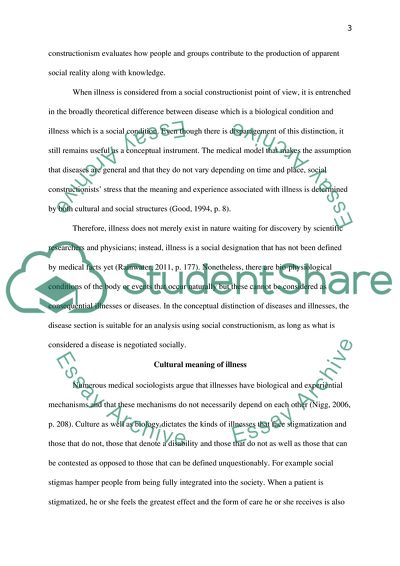Cite this document
(Health and Illness are Social Phenomena Essay Example | Topics and Well Written Essays - 2250 words, n.d.)
Health and Illness are Social Phenomena Essay Example | Topics and Well Written Essays - 2250 words. https://studentshare.org/sociology/1844575-health-and-illness-are-social-phenomena-not-biological-discuss
Health and Illness are Social Phenomena Essay Example | Topics and Well Written Essays - 2250 words. https://studentshare.org/sociology/1844575-health-and-illness-are-social-phenomena-not-biological-discuss
(Health and Illness Are Social Phenomena Essay Example | Topics and Well Written Essays - 2250 Words)
Health and Illness Are Social Phenomena Essay Example | Topics and Well Written Essays - 2250 Words. https://studentshare.org/sociology/1844575-health-and-illness-are-social-phenomena-not-biological-discuss.
Health and Illness Are Social Phenomena Essay Example | Topics and Well Written Essays - 2250 Words. https://studentshare.org/sociology/1844575-health-and-illness-are-social-phenomena-not-biological-discuss.
“Health and Illness Are Social Phenomena Essay Example | Topics and Well Written Essays - 2250 Words”. https://studentshare.org/sociology/1844575-health-and-illness-are-social-phenomena-not-biological-discuss.


